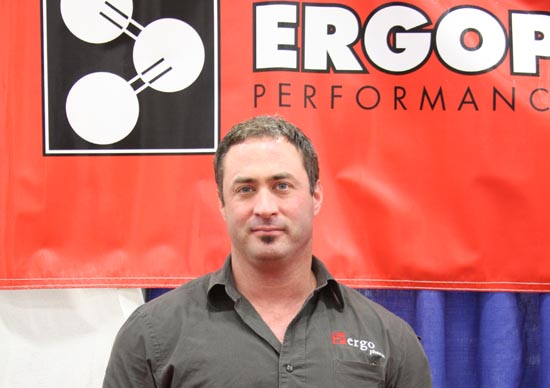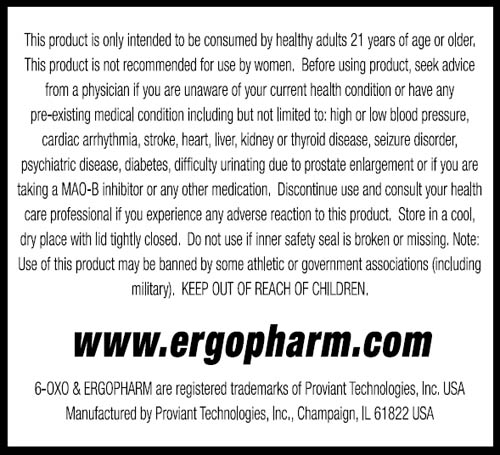
MLB baseball player J.C. Romero has filed a civil lawsuit against the manufacturers and distributors of the 6-OXO Extreme. 6-OXO Extreme is sold as a dietary supplement and marketed as an aromatase inhibitor. Romero blames androstenedione contamination in the supplement for his positive anabolic steroid test results administered on August 26, 2008 under the Major League Baseball (MLB) drug policy. Romero of the Philadelphia Philles was suspended for 50 games as a result (“Suspended Phillie Romero files suit,” April 28).
The lawsuit names Ergopharm, Proviant Technologies, GNC and Vitamin Shoppe as the four defendants accused of negligence, intentional misrepresentation and consumer fraud. Chemist Patrick Arnold formulated and manufactured the supplement 6-OXO Extreme for his companies Erogpharm and Proviant. J.C. Romero’s lawyers have defended numerous athletes accused of doping after failing drug tests like Floyd Landis, Marion Jones, Tim Montgomery, Jessica Hardy and Deuce McAllister (“Suspended Phillies reliever J.C. Romero suing supplement makers over positive steroid test,” April 28).
The lawsuit against Ergopharm, Proviant, GNC and Vitamin Shoppe is surprisingly frivolous [misdirected] given the expertise of Romero’s lawyers which include Howard Jacobs and David Cornwell. The main issue in the case is the claim that the failure to disclose androstenedione contamination in 6-OXO Extreme by the defendents was THE REASON that J.C. Romero tested positive for anabolic steroids; this subsequently resulted in his suspension and the forfeiture of $1,245,902 in salary.
The fact is that J.C. Romero would have tested positive for anabolic steroids and received a suspension IN THE ABSENCE of ANY androstenedione contamination. The supplement 6-OXO itself would have triggered a false positive for androstenedione since it is metabolized into 6a-OH-androstenedione; this is the same urinary metabolite produced by androstenedione. The issue of androstenedione contamination is nothing more than a red herring.
An attempt to blame a positive anabolic steroid result on minute traces of androstenedione after intentionally consuming 6-OXO is analagous to an attempt to blame a DUI on mouthwash after intentionally consuming a bottle of vodka! The 6-OXO itself clearly caused a false positive for steroids in the J.C. Romero case and NOT minute traces of androstenedione contamination.
Every single lot of Ergopharm 6-OXO Extreme sold and distributed by Proviant, Ergopharm, GNC and Vitamin Shoppe contained the following warning: “Use of this product may be banned by some athletic or government associations (including military)” (“Supplement maker disputes Phillies pitcher’s claim,” April 28).
“If an athlete chooses to ignore an explicit warning on the label of a dietary supplement product, fails to conduct reasonable inquiry, and thereafter tests positive for a banned substance, the athlete should take responsibility for their actions,” Proviant’s two-page unsigned statement said.

Yet, J.C. Romero refuses to accept responsibility. After all, the sales clerks at the Vitamin Shoppe in Cherry Hill, New Jersey and GNC in Fairhope, Alabama promised him that he did not have to worry about a positive drug test from 6-OXO Extreme. They recommended a supplement that didn’t work as promised so he sues the parent company. It is hard to believe that Romero is so naive and gullible to blindly believe a claim made by a minimum wage worker at GNC or Vitamin Shoppe.
Romero claims to have taken “reasonable precautions” and “satisfied himself through his research that neither product contained any substances that were banned and/or prohibited from use by Major League Baseball.” But he didn’t take the minimal precaution of reading the label warnings.
Reasonable precautions and research might have revealed that (1) Ergopharm 6-OXO warns consumers that the product might be banned by some sports bodies; (2) the MLB prohibits the use of anti-aromatase inhibitors because “agents with antiestrogenic activity shall be considered Performance Enhancing Substances covered by the program; or (3) 6-OXO is banned by the World Anti-Doping Agency (WADA) prohibited substances list. The unavoidable conclusion is that Romero made a careless and unfortunate mistake.
The legal status of 6-OXO Extreme as a dietary supplement under the Dietary Supplement Health and Education Act (DSHEA) does not mean that the supplements are permitted by athletes governed by private sporting bodies. There are numerous substances, dietary supplements and pharmaceuticals, that consumers are legally permitted to consume that athletes can not. Consumers are NOT and should not be governed by the World Anti-Doping Agency. The laws regulating consumer choice should not be based on what athletes are permitted to consume.
Does any reasonable person believe the following? (J.C. Romero v. Ergopharm, et al.)
As a direct and proximate result of Plaintiffs reliance on Defendants’ untrue representations, plaintiff consumed the contaminated product 6-OXO EXTREME and sustained injuries. As a consequence of these injuries, Plaintiff has sustained damages, including but not limited to, physical contamination and intrusion of Plaintiffs body, including contamination with dangerous substance that are harmful to Plaintiff injuring him in such a way as to not be able to complete his duties and job as a professional athlete. Plaintiff’s injuries also include the loss of once-in-a-lifetime opportunities and Plaintiffs reputation. As a consequence of these injuries, Plaintiff has incurred the following damages in amounts to be proven at trial:
a. Loss of past income and earning capacity in an amount to be proven at trial;
b. Loss of income and earning capacity which Plaintiff can reasonably be expected to have enjoyed in the future in an amount to be set forth at trial;
c. Past and future pain, suffering and humiliation in an amount to be set forth at trial;
d. Loss of enjoyment of life, past and future, in an amount to be set forth at trial.

About the author
Millard writes about anabolic steroids and performance enhancing drugs and their use and impact in sport and society. He discusses the medical and non-medical uses of anabolic-androgenic steroids while advocating a harm reduction approach to steroid education.

Leave a Reply
You must be logged in to post a comment.